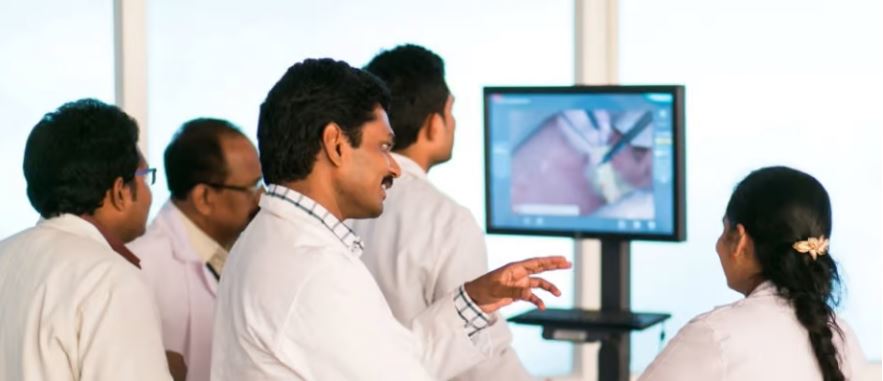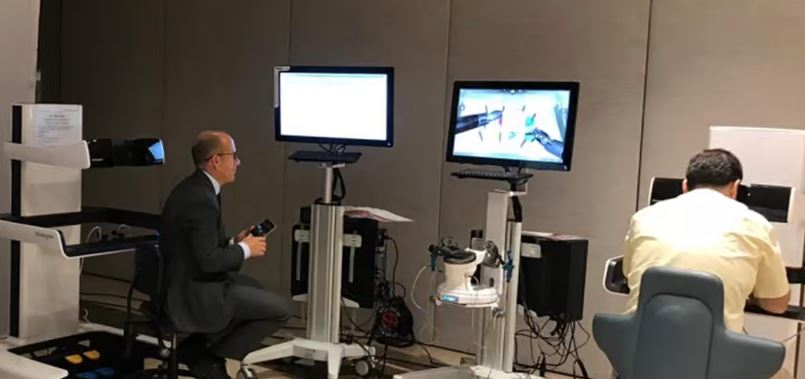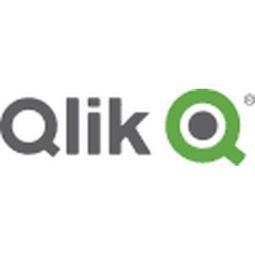Customer Company Size
Large Corporate
Region
- America
Country
- United States
Product
- Qlik AutoML
Tech Stack
- Data warehouse
- Analytics Dashboards
- Argos
- Survey tools
- Retention tool
Implementation Scale
- Enterprise-wide Deployment
Impact Metrics
- Productivity Improvements
- Customer Satisfaction
Technology Category
- Analytics & Modeling - Predictive Analytics
Applicable Industries
- Education
Applicable Functions
- Business Operation
Use Cases
- Predictive Quality Analytics
- Predictive Replenishment
Services
- Data Science Services
About The Customer
Weber State University is a state-funded community college as well as a bachelor’s-, master’s-, and — as of recently — doctoral-granting institution in Utah. They are non-selective in which applicants can attend, attracting students from varied educational backgrounds including many developmental students that need additional help in math or English composition. The university has a mission to close the skills gap for these types of students, and they have seen big gains over the last three years.
The Challenge
Weber State University (WSU) began using Qlik AutoML in late Q1 2020, right as the pandemic took hold in the US. As Covid-19 wreaked havoc, the university had difficult decisions to make about where to allot resources in the midst of self-described “survival mode.” A combination of the right power at the right price made Qlik AutoML a viable choice even in uncertain times as a method to empower, support, and retain their students in a quickly-changing world. After a trial month with Qlik AutoML, decision-makers saw value thanks to Qlik AutoML’s ability to translate something complicated to something understandable, making it easier to share with stakeholders with and without technology backgrounds. With limited funding, Qlik AutoML was a more attractive option because of its affordability compared to competitors and consultants that can incur “astronomical expenses,” according to WSU’s Heather Chapman, Director, Academic Analytics.
The Solution
WSU is using Qlik AutoML to fuel a variety of predictive analytics projects and to answer questions including: Persistence - Which students will persist (i.e. come back for the next term)? What are the characteristics of these students? Persistence is a key factor in getting funding for the university. Graduation - Which students were most likely to graduate? What impacted graduating students? Among their most impactful projects so far, WSU discovered that worry-free aid—aid that students did not have to pay back— dramatically impacted a student’s chances of graduating. Graduation is another key factor in determining funding. Accreditation - WSU incorporated predictive analytics into the accreditation process to help quantify and show that the degrees they issue are valuable and meaningful. WSU has many upcoming projects they want to try using Qlik AutoML. The ease and speed of Qlik AutoML is opening more room for idea exploration than previous methods of predictive analytics that required time-consuming, iterative processes.
Operational Impact

Case Study missing?
Start adding your own!
Register with your work email and create a new case study profile for your business.
Related Case Studies.

Case Study
IoT platform Enables Safety Solutions for U.S. School Districts
Designed to alert drivers when schoolchildren are present, especially in low-visibility conditions, school-zone flasher signals are typically updated manually at each school. The switching is based on the school calendar and manually changed when an unexpected early dismissal occurs, as in the case of a weather-event altering the normal schedule. The process to reprogram the flashers requires a significant effort by school district personnel to implement due to the large number of warning flashers installed across an entire school district.

Case Study
Revolutionizing Medical Training in India: GSL Smart Lab and the LAP Mentor
The GSL SMART Lab, a collective effort of the GSL College of Medicine and the GSL College of Nursing and Health Science, was facing a challenge in providing superior training to healthcare professionals. As clinical medicine was becoming more focused on patient safety and quality of care, the need for medical simulation to bridge the educational gap between the classroom and the clinical environment was becoming increasingly apparent. Dr. Sandeep Ganni, the director of the GSL SMART Lab, envisioned a world-class surgical and medical training center where physicians and healthcare professionals could learn skills through simulation training. He was looking for different simulators for different specialties to provide both basic and advanced simulation training. For laparoscopic surgery, he was interested in a high fidelity simulator that could provide basic surgical and suturing skills training for international accreditation as well as specific hands-on training in complex laparoscopic procedures for practicing physicians in India.

Case Study
Implementing Robotic Surgery Training Simulator for Enhanced Surgical Proficiency
Fundacio Puigvert, a leading European medical center specializing in Urology, Nephrology, and Andrology, faced a significant challenge in training its surgical residents. The institution recognized the need for a more standardized and comprehensive training curriculum, particularly in the area of robotic surgery. The challenge was underscored by two independent studies showing that less than 5% of residents in Italian and German residency programs could perform major or complex procedures by the end of their residency. The institution sought to establish a virtual reality simulation lab that would include endourological, laparoscopic, and robotic platforms. However, they needed a simulator that could replicate both the hardware and software of the robotic Da Vinci console used in the operating room, without being connected to the actual physical console. They also required a system that could provide both basic and advanced simulation training, and a metrics system to assess the proficiency of the trainees before they performed surgical procedures in the operating theater.

Case Study
Edinburgh Napier University streamlines long-distance learning with Cisco WebEX
• Geographically dispersed campus made in-person meetings costly and inconvenient.• Distance-learning programs in Malaysia, India, and China required dependable, user-friendly online tools to maximize interaction in collaborative workspaces.• Virtual learning environment required a separate sign-in process, resulting in a significant administrative burden for IT staff and limited adoption of collaboration technology.

Case Study
8x increased productivity with VKS
Before VKS, a teacher would spend a lot of time showing a group of 22 students how to build a set of stairs within a semester of 120 hours. Along with not leaving the teacher much time to provide one-on-one support for each student to properly learn carpentry, it also left a considerable amount of room for error. Key information would be misinterpreted or lost as the class was taught in the typical show-and-tell way.

Case Study
Scalable IoT Empowering GreenFlex's Sustainable Growth
GreenFlex, a company that supports sustainable development, decarbonization, and energy efficiency, faced several challenges in its quest to expand its business. The company needed to deploy a robust and sustainable IoT technology to support its growth. It was crucial for them to monitor and control devices at customer sites in a safe and reliable manner. They also needed to integrate devices across a range of communication protocols and gather and act on data to meet efficiency targets. GreenFlex had previously built IoT capabilities into its digital platform, GreenFlexIQ, to monitor and manage customer sites remotely. However, they soon realized that they needed a new platform to support their ambitions. They needed a platform that could scale to connect more devices for production management and make it easier for the operations team to manage devices in the field.



